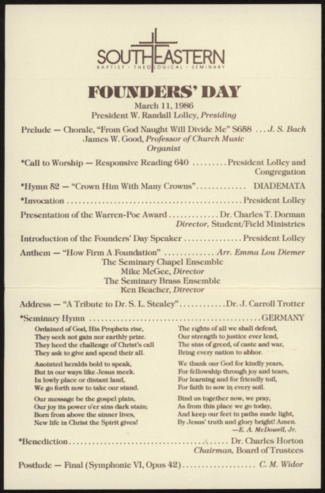Busca
« ant |
101 - 110 de 302
|
próx »
Resultados da Busca
Select an image to start the slideshow

SEBTS Kendrick-Poerschke Lecture - Adrian L. Van Kaam and Susan Muto March 26, 1986
1 of 10

SEBTS Kendrick-Poerschke Lecture - Adrian L. Van Kaam and Susan Muto March 25, 1986
2 of 10

SEBTS Chapel - Stephen Blake Boyd April 1, 1986
3 of 10

SEBTS Chapel - Middler Class March 12, 1986
4 of 10

SEBTS Founder's Day Address - Julius Carroll Trotter March 11, 1986
5 of 10

SEBTS Chapel - Russell Jones March 6, 1986
6 of 10

SEBTS Chapel - Nancy Osborne March 5, 1986
7 of 10

SEBTS Chapel - Nancy Ferree March 4, 1986
8 of 10

SEBTS Adams Lecture - Hugh Anderson February 14, 1986
9 of 10

SEBTS Adams Lecture - Hugh Anderson February 13, 1986
10 of 10
